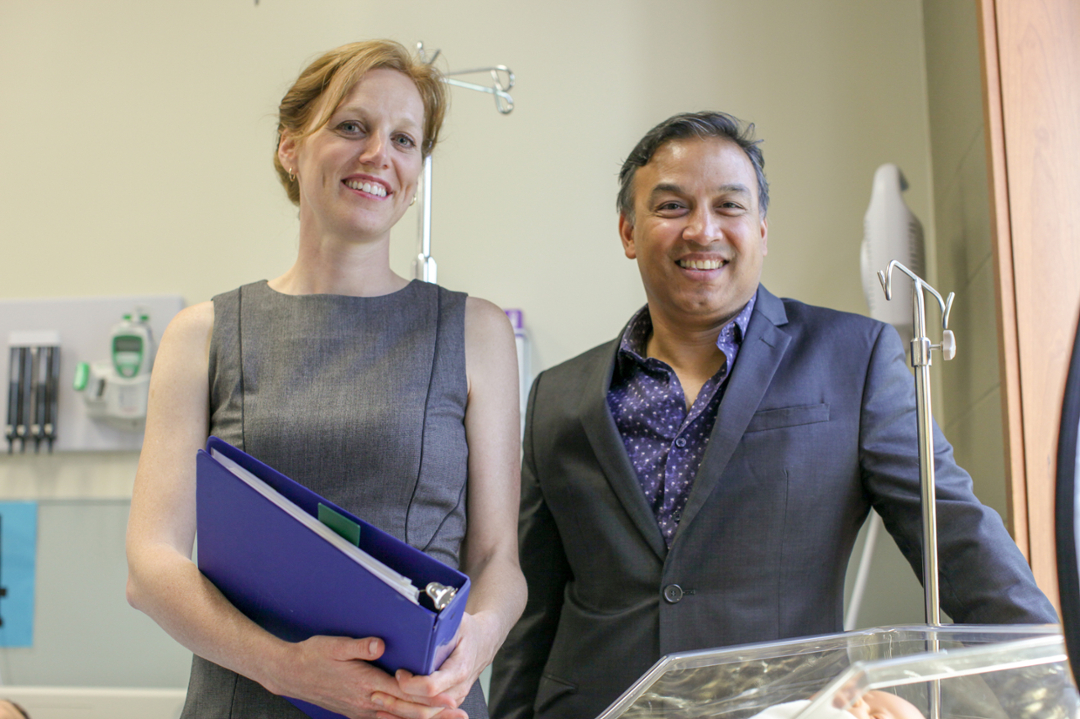
Midwifery linked to lower odds of birth complications for low-income women
New research from the University of Saskatchewan (U of S) and the University of British Columbia (UBC) is adding new evidence in support of midwives as a safe option for prenatal care, especially for women who have low socioeconomic status.
The study, published today in the British Medical Journal Open, found that low-income pregnant women who receive care from a midwife compared to a physician are less likely to go into early labour, to have a baby with a low birth weight, or to have a small-for-gestational age birth, meaning a fetus or infant that is smaller or less developed than normal for the number of weeks in pregnancy.
Midwives, general practitioners (GPs) and obstetricians (OBs) are all qualified to provide safe prenatal care for women during their pregnancy, labour and birth, but each offer a different style of care that matches different women’s preferences and needs. Midwives are experts in the care of women having healthy pregnancies, and tend to spend more time with their patients with a focus on the overall physical, emotional and psychological wellbeing of mothers and their newborns.
“Our findings show that women who are more vulnerable benefit from the care of a midwife, likely because they receive more time, counselling and education on how to care for themselves,” said the study’s lead author Daphne McRae, a post-doctoral research fellow at the UBC school of population and public health who conducted the study while she was a PhD student at the U of S.
Read more on the university's news site.
